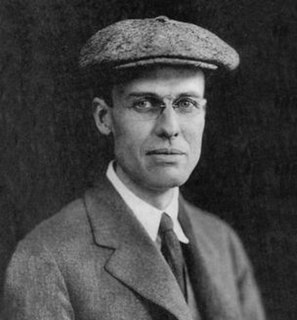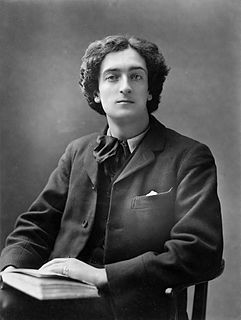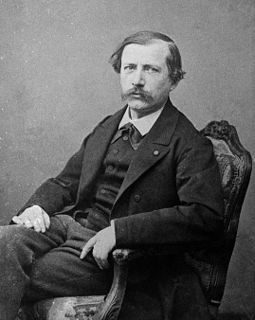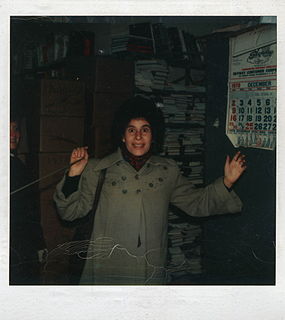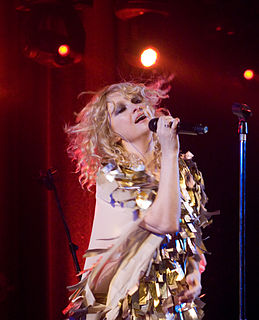A Quote by Edward Hopper
There will be, I think, an attempt to grasp again the surprise and accidents of nature and a more intimate and sympathetic study of its moods, together with a renewed wonder and humility on the part of such as are still capable of these basic reactions.
Related Quotes
Depression moods lead, almost invariably, to accidents. But, when they occur, our mood changes again, since the accident shows we can draw the world in our wake, and that we still retain some degree of power even when our spirits are low. A series of accidents creates a positively light-hearted state, out of consideration for this strange power.
There's a theory of accidents that I studied when I was making a film about nuclear weapons: you can never eliminate accidents, because the measures you introduce to prevent accidents actually produce more accidents. That's certainly true of this sport; you're flying over 40 feet of what might look like snow, but it's hard as ice, it's as hard as pavement. You're doing acrobatic spins and tricks, 40 feet above pavement, essentially. There's been more accidents since, and there are going to continue to be more accidents, that's the nature of the sport.
When this immediate evil power has been defeated, we shall not yet have won the long battle with the elemental barbarities. Another Hitler, it may be an invisible adversary, will attempt, again, and yet again, to destroy our frail civilization. Is it true, I wonder, that the only way to escape a war is to be in it? When one is a part of an actuality does the imagination find a release?
One can, then, conceive the production, by purely mineral means, of all natural hydrocarbons. The intervention of heat, of water, and of alkaline metals - lastly, the tendency of hydrocarbons to unite together to form the more condensed material - suffice to account for the formation of these curious compounds. Moreover, this formation will be continuous because the reactions which started it are renewed incessantly.
There are no accidents, only nature throwing her weight around. Even the bomb merely releases energy that nature has put there. Nuclear war would be just a spark in the grandeur of space. Nor can radiation alter nature: she will absorb it all. After the bomb, nature will pick up the cards we have spilled, shuffle them, and begin her game again.
Ruskin's much-derided moral theory of art was part of an attempt to show that this human activity, which we value so highly, engaged the whole of human personality. His insistence on the sanctity of nature was part of an attempt to develop Goethe's intuition that form cannot be put together in the mind by an additive process, but is to be deduced from the laws of growth in living organisms, and their resistance to the elements.
The scientist does not study nature because it is useful to do so. He studies it because he takes pleasure in it, and he takes pleasure in it because it is beautiful. If nature were not beautiful it would not be worth knowing, and life would not be worth living. I am not speaking, of course, of the beauty which strikes the senses, of the beauty of qualities and appearances. I am far from despising this, but it has nothing to do with science. What I mean is that more intimate beauty which comes from the harmonious order of its parts, and which a pure intelligence can grasp.
For me words still possess their primitive, mystical, incantatory powers. I am inclined to use them as part of an attempt to make my own reality more real for others, as part of an effort to transcend emotional danger. For me, words are a form of action, capable of influencing change. Their articulation represents a complete, lived experience.
It is impossible to encircle the hips of a girl with my right arm and hold her smile in my left hand, then proceed to study the two items separately. Similarly, we can not separate life from living matter, in order to study only living matter and its reactions. Inevitably, studying living matter and its reactions, we study life itself
When I was approached to be the 'Bachelorette,' I was like, 'Uh, no. I don't think I can do this again.' It was conversations that I had with people that said, 'I'm so happy to see a Black woman represented well in a franchise, or 'I'm watching this show again because you did it,' that renewed my wanting to be part of this franchise.
I know no study that will take you nearer the way to happiness than the study of nature - and I include in the study of nature not only things and their forces, but also mankind and their ways, and the moulding of the affections and the will into an earnest desire not only to be happy, but to create happiness.
The pace at which science has progressed has been too fast for human behaviour to adapt to it. As I said we are still apes. A part of our brain is still a paleo-brain and many of the reactions come from our fight or flight instinct. As long as this part of the brain can take over control the rational part of the brain (we will face these problems).
